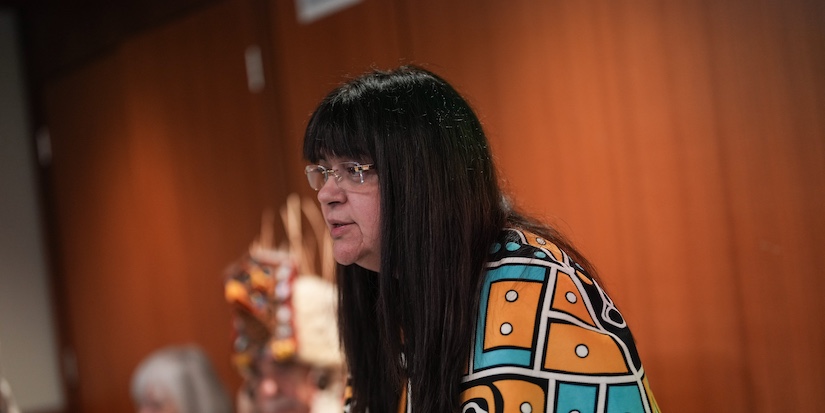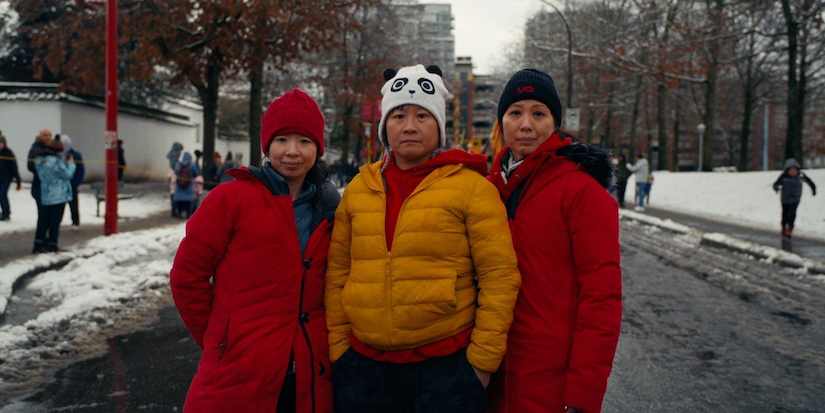Latest News
Cranberries family affair for Mays
Cory May is seeing red, but couldn’t be
happier.
Harvest season is one of the most exciting,
and busiest, times of the year for May—exactly the way he likes it.
The process of gathering a ripe crop from the
fields is labour-intensive, and even with expensive and sophisticated farm
machinery is a massive undertaking. But as a proud descendant of a pioneer
farming family in Richmond, agriculture is in his blood.
“I always knew I would be doing this. I love
the whole experience,” says Cory, a third generation cranberry grower/owner for
Ocean Spray.
The Mays are the largest cranberry growing
family in the world. Cory is following in the footsteps of his dad Randy and
grandfather Duncan, who along with Duncan’s five sons planted their first
cranberries in the 1960s and joined the Ocean Spray co-operative shortly after.
Today, their 200 farms cover nearly 2,000 acres and produce several hundred
thousands barrels of cranberries annually.
British Columbia is one of the largest producers of cranberries in the world.
The industry creates nearly 400 jobs for local farmers, with the province’s
cranberry growers producing 37 per cent of Canada’s cranberries.
UNIQUE GROWING CONDITIONS
But B.C. is different from elsewhere in the
co-op, since our cranberries are grown on peat moss.
“A lot of them are grown in sandy bogs where
you can pinpoint the micro nutrients much easier,” Cory explains. “Peat (makes
it) a lot harder to know when to fertilize. But we’re lucky enough that our
dads had been doing this long enough they developed a bit of a science.”
“With family there are always such different
scenarios because every day is different,” Cory says. “One day you’re on the tractor
and the next day building your own machinery you need to work on the farm.
You’re always trying new things and building new things. Sometimes you go into
the shop and build something that looks like it’s out of a movie. A lot of the
stuff you see on a farm you’ll never see anywhere else.”
AT HOME WITH OCEAN SPRAY
“It’s clear to me that the Mays are very
dedicated to producing the best possible cranberries,” says Ocean Spray’s
Kelly-Anne Dignan. “Cranberry farming is unique and I’ve been lucky enough to
go to all the regions where and observe the thread that goes through it. You
see generations of families dedicated to this fruit and bringing it to
consumers. It’s fascinating when you look at it, that there are only a few
thousand families that grow cranberries in the entire world.”
In fact, only three countries—Canada, the
U.S. and a small part of Chile—produce the crop that last year was exported to
104 nations.
“One of the things I’ve learned from my six
years at Ocean Spray is farmers have that special spirit,” Dignan says. “Over
the last 20 years we’ve seen tremendous growth and part of that is the public
seeing the functional benefits of cranberries. It’s a super food, especially in
an era when you’re seeing a lot of hot functional foods from South America. I
think (the cranberry industry) is just beginning to tap into that.”
Cory says when the health benefits of
cranberries started becoming to become widespread in the late 1990s, it was
“humbling” knowing he was producing a product that can help people.
Cory has never doubted being a cranberry
grower. Being part of Ocean Spray has only strengthened his faith.
“Ocean Spray is a big family. The co-op is
all growers and we all work together, even outside of the country. We’re always
talking to each other about being better. Ocean Spray is like an old friend you
don’t have to see all the time, but when you do, you pick up where you left
off. There’s so much to talk about. We feel like one big family. It’s really
special.”
INSPIRING THE FUTURE
Cory and his wife are the proud parents of
three children of their own; two daughters and a son aged seven to 11. Cory
says nothing makes them happier than visiting the farm.
“They love going before school. They all go
in the water and love pulling the booms and pushing fruit into the elevator.
Anything they can help out with. It’s pretty special.”
But, Cory stresses, as much as he’d love for
them to carry on the family tradition, he and his wife will do the same as his
parents.
“My dad always had a rule that after we
finished high school we either had
to go (post-secondary) school for two years or work off the farm for two years
to make sure this is what we wanted to do. We will do the same with our kids.”






























